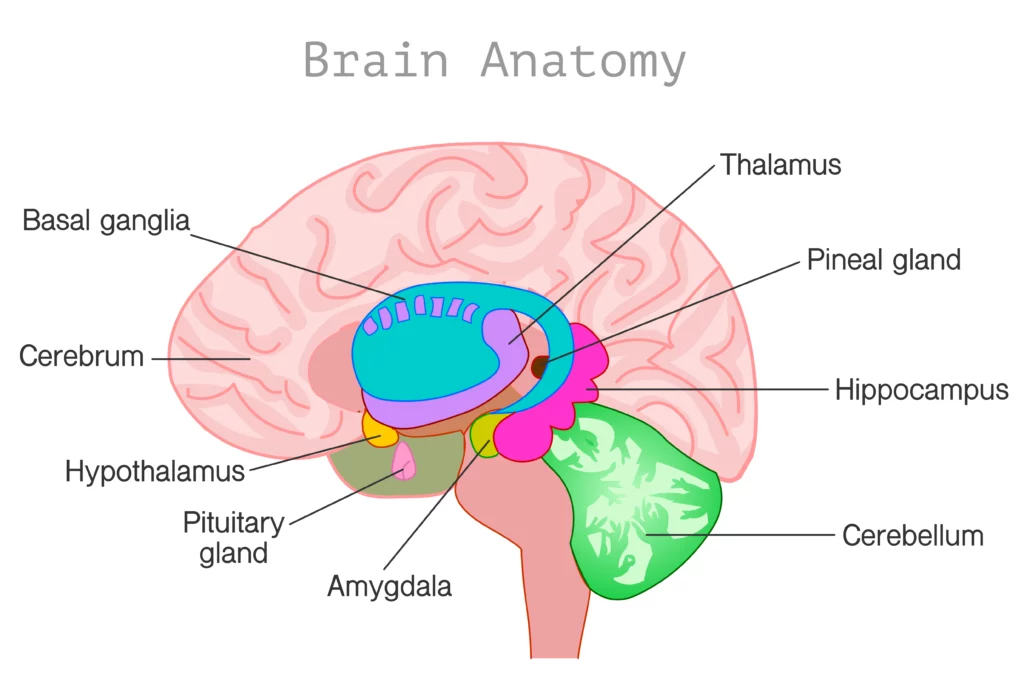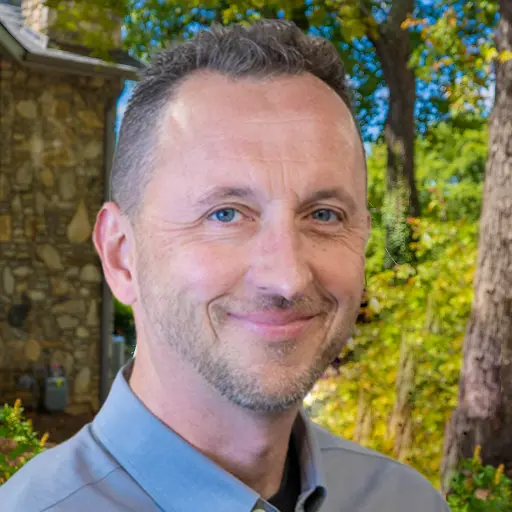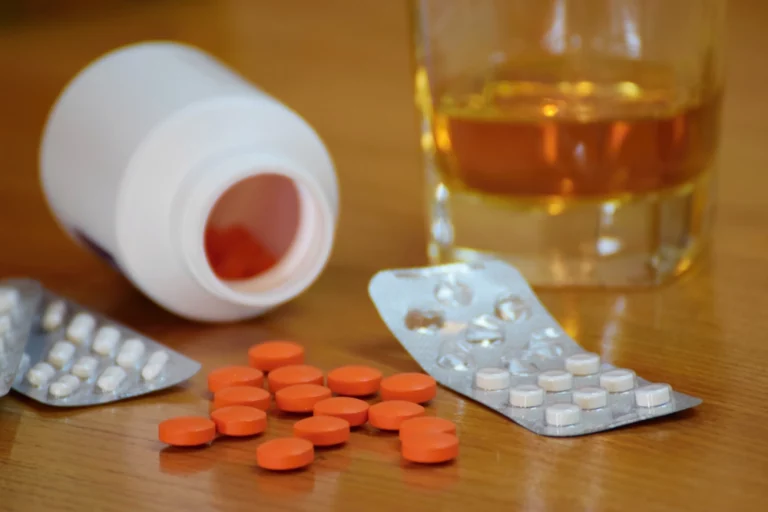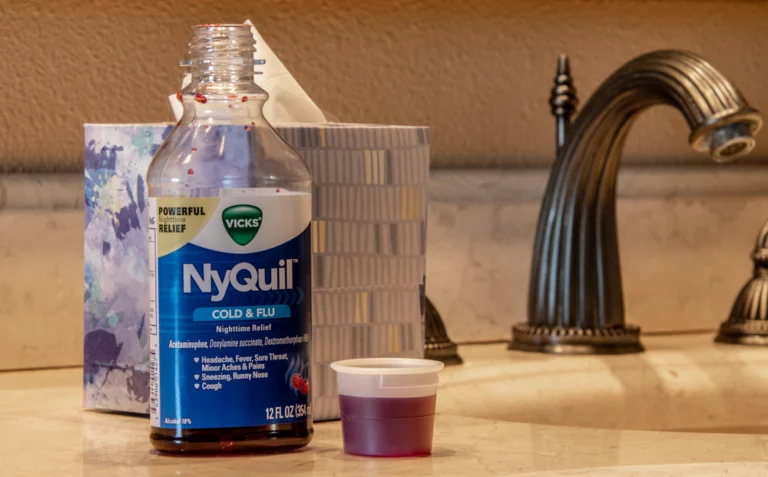Addiction affects multiple parts of your body. Just as cardiovascular disease damages the heart, addiction drastically changes the brain by impairing the way it functions. These changes can make it difficult for individuals struggling with substance use disorders to control impulses related to using. Fortunately, addiction is treatable, and negative changes in the brain are reversible through proper treatment and abstinence from drugs and alcohol.
In this article, you’ll learn how long it takes for the brain to rewire from addiction, the areas of the brain most affected, if certain addictions take longer to heal from, and the stages of brain healing and improvement.
Connect With Us Now
Reach out to us now for immediate support, or let us know the best time to contact you through our confidential callback service. Your journey to healing is just a conversation away.
How Long Does It Take To Rewire The Brain After Addiction?
According to addiction treatment clinicians, it takes around 30 to 60 days after quitting substance for your prefrontal cortex and frontal lobe to start functioning correctly. Typically, the longer someone has abused drugs and the more severe the abuse, the longer it takes for the brain to rewire. Additionally, it takes about 45 days for a new habit, bad or good, to become a cemented routine.
However, bad habits, like substance use, can return in 1 to 3 days. Once you’ve wired a reward circuit, you cannot ‘obliterate’ that pathway. Studies have shown through PET scans that when we stop using a pathway, it looks like a wilting flower. When we choose to use that pathway again, it looks like a flower budding and opening up. So rewiring never completely obliterates the old pathway (unfortunately), but the old pathway will become weaker and weaker as long as it is not accessed. The pathways ‘we trust,’ which are the ones we use every day (aka new coping skills), are what the brain will then begin relying on more and more.
The best approach is to allow your brain the opportunity to heal and try not to worry about the timeframe. Most addiction specialists recommend focusing on recovery one step at a time, similar to Alcoholics Anonymous’ daily reflection, “one day at a time.”

Which Areas of the Brain Are Most Affected by Addiction?
While substance abuse affects several areas of the brain, it significantly impacts the basal ganglia, the prefrontal cortex, and extended amygdala.
- Basal ganglia: The basal ganglia is a component within the brain that functions as a reward circuit. When a person uses drugs, they experience a euphoric high due to the overactivation of this area. Over time, this part becomes accustomed to having the chemical substance present, which causes the user to have difficulty finding joy in other areas of life.
- Prefrontal cortex: The prefrontal cortex is mainly responsible for problem-solving and self-control. Because this area is also responsible for impulse control, it is negatively affected as addiction takes hold, making it more difficult for the user to resist their drug of choice. Therefore, they compulsively seek addictive substances regardless of the negative consequences.
- Extended amygdala: The extended amygdala regulates stressful emotions, including anxiety, irritability, and uneasiness, all of which occur during drug and alcohol withdrawal. Substance abuse can make this area increasingly sensitive, which can lead to induced or worsened mental health conditions.
Read about the mental, physical, and financial costs of drinking or using drugs during work.
Take Our Addiction Quiz for Recovery Insights
Does It Take The Brain Longer To Heal From Certain Types of Drugs?
In general, the length of time a person has abused drugs and alcohol influences how long it takes for the brain to heal. Long-term abuse will cause significant changes in the brain’s chemical circuits and systems. However, with enough time, you can reverse much of this damage.
Certain drugs can cause significant changes in the brain and increase the healing time necessary for optimal health. These drugs are cocaine, heroin, alcohol, methamphetamine, and barbiturates.
- Cocaine disrupts the brain’s reward system by blocking dopamine reuptake, leading to addiction and increased risk of stroke due to vasoconstriction.
- Heroin binds to opioid receptors in the brain, causing euphoria and impairing decision-making, with overdose potentially leading to respiratory depression and brain damage.
- Alcohol’s depressant effects on neurotransmitter systems can result in cognitive impairment, brain shrinkage, and increased vulnerability to neurological disorders such as Wernicke-Korsakoff syndrome.
- Methamphetamine overstimulate dopamine and norepinephrine release, damaging neurons and altering brain structure and function, contributing to cognitive deficits and cardiovascular complications.
- Barbiturates enhance GABA activity, leading to sedation and dependence, with long-term use causing cognitive impairment and withdrawal, potentially triggering seizures and respiratory depression.
Much of the damage resulting from drug and alcohol use results from the following:
- Inefficient nutrition for healthy brain tissue
- The alteration of neurotransmitters and brain chemicals through drug use
- Change in hormones within the brain
- Oxygen deprivation
- Direct injury and damage to brain cells, receptors, and neurons
Typical Stages of Brain Healing and Improvement
Fortunately, healing is possible through proper evidence-based treatment and other recovery tools. For example, regular exercise boosts the size of the hippocampus, which plays an essential part in learning and memory retention. In addition, meditation strengthens the brain circuits, while eating a nourishing, well-balanced diet can address nutrition deficiencies due to substance abuse. Sleep is also vital in the brain’s healing process.
The time necessary for the brain to heal depends upon several factors. While the rewiring process can take as little as a month in some cases, it usually takes much longer, especially if there is a history of significant or prolonged substance abuse.
Because drug use floods the body with dopamine, the brain stops producing much of it. This lack of dopamine production may cause you to feel sad, and you may find it difficult to enjoy your favorite activities when you first get clean. As your brain produces normal dopamine levels again, these feelings will lessen with time. This process often takes several months.
Through proper rehabilitation, you can reverse the effects of addiction on your brain and help it heal. However, there is no “one-size-fits-all” solution for this process. Your path to recovery is unique. Therefore, treatment plans are tailored to your individual needs.
Cognitive behavioral therapy (CBT) is an efficient tool in rehabilitation and can address thought patterns and behaviors related to your addiction. As you discover better coping strategies and recognize triggers, you’ll create healthier pathways in your brain. Art and music therapy are also helpful components of addiction treatment and stimulate the brain, promoting healing and fostering neural connections and vital brain function. Each of these activities can hasten the recovery process.
Check out a realistic timeline of the benefits most people experience after quitting alcohol.
Are You Covered For Treatment?
Knoxville Recovery Center partners with numerous private insurance providers. Our team is committed to assisting you in quickly and effortlessly verifying your insurance coverage for treatment.
What Are Neuroplastic Changes? Are They Permanent?
The brain is an extraordinary organ that will eventually heal if given the opportunity and time. Neuroplasticity refers to the discovery that gray matter can shrink or expand while neural connections can be strengthened or severed depending on exposure to a substance or an activity. As it changes, it affects your cognitive abilities as well.
Neuroplastic changes are not necessarily permanent, and most are reversible if you stay clean and continue to engage in proper self-care and healthy behaviors. The discovery of neuroplasticity offers hope and a pathway to practical solutions for those struggling with addiction. The brain can adapt, and with the proper guidance, holistic approaches, and support, you can overcome addiction and redirect the outcome of your life.
A few treatment therapies we recommend to encourage brain health and restore neural pathways include:
- Motivational Interviewing (MI): MI is a client-centered therapy that focuses on enhancing motivation and commitment to change. By exploring ambivalence and eliciting intrinsic motivation, MI can stimulate neuroplasticity by encouraging individuals to adopt healthier behaviors and attitudes towards substance use.
- Mindfulness-Based Therapy: Mindfulness practices, such as Mindfulness-Based Stress Reduction (MBSR) or Mindfulness-Based Relapse Prevention (MBRP), can promote neuroplastic changes by increasing awareness of cravings, emotions, and triggers related to addiction. By cultivating nonjudgmental acceptance and self-regulation skills, mindfulness techniques can help rewire neural pathways associated with addictive behaviors.
- Exercise and Physical Activity: Regular exercise has been shown to enhance neuroplasticity by promoting the release of neurotransmitters such as dopamine and brain-derived neurotrophic factor (BDNF). Incorporating physical activity into addiction treatment can help repair neural damage caused by substance abuse and facilitate the development of healthier habits.
Knoxville Recovery Center Can Help
If you or a loved one is struggling with addiction and wants to heal and allow the brain to recover, contact Knoxville Recovery Center. Our facility offers medical detox and residential addiction treatment, two of the most important treatment programs for individuals with chronic substance use histories and dependence. Clients are surrounded by compassionate and caring staff who want to help and provide the unique resources everyone needs to succeed. Even if you’re not ready for treatment, talking to a specialist over the phone can point you in the right direction. Call, email, or fill out a form to learn more.









